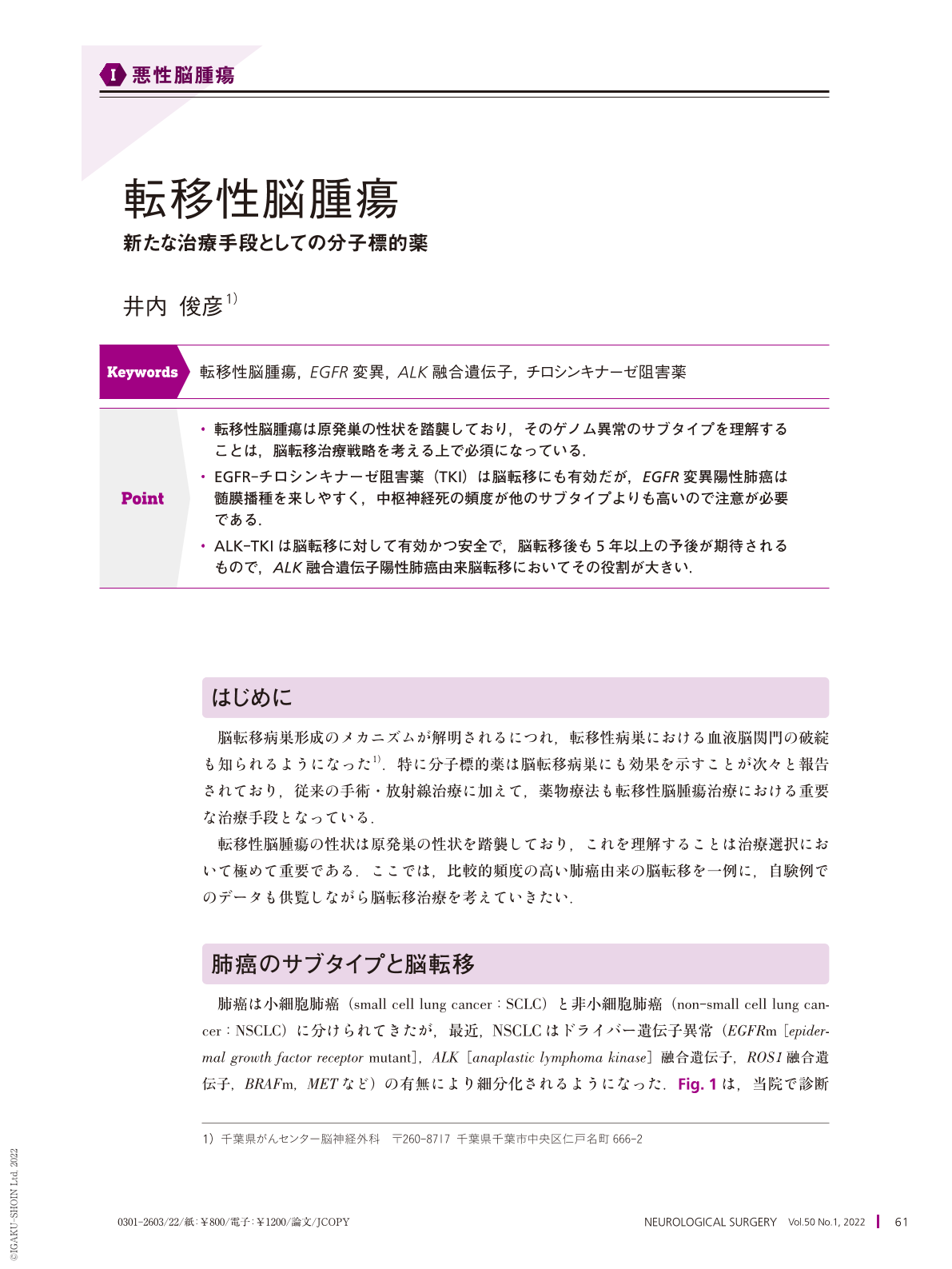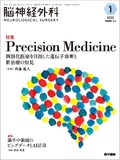Japanese
English
- 有料閲覧
- Abstract 文献概要
- 1ページ目 Look Inside
- 参考文献 Reference
Point
・転移性脳腫瘍は原発巣の性状を踏襲しており,そのゲノム異常のサブタイプを理解することは,脳転移治療戦略を考える上で必須になっている.
・EGFR-チロシンキナーゼ阻害薬(TKI)は脳転移にも有効だが,EGFR変異陽性肺癌は髄膜播種を来しやすく,中枢神経死の頻度が他のサブタイプよりも高いので注意が必要である.
・ALK-TKIは脳転移に対して有効かつ安全で,脳転移後も5年以上の予後が期待されるもので,ALK融合遺伝子陽性肺癌由来脳転移においてその役割が大きい.
Brain metastases(BM)follow the nature of the primary cancer, and understanding the associated genomic abnormalities is essential in the construction of therapeutic strategies for BM. BM showed an excellent response to EGFR-TKI, but the duration of the effect was limited to approximately one year. Despite the longer survival of patients with EGFRm BM, these tumors tended to progress to leptomeningeal carcinomatosis(LMC), and the frequency of central nervous system death was higher than that of tumors without driver mutations. EGFR-TKI also had an effect on LMC and even improved hydrocephalus, but it achieved negative conversion of cancer cells in the cerebrospinal fluid in only limited cases. ALK-TKI also induced a good reduction of BM, and the duration of the response was quite long. Because the expected prognosis of patients after BM in ALK-positive cases is over 5 years, we should choose treatment modalities that are safe in the long term. The dominant cause of death in cancer patients is extracranial progression, and control of extracranial lesions should be prioritized, even in cases with BM. Therefore, the purpose of treatment of BM is to keep patients in a better condition and to maintain the indications for systemic treatment, and molecular-targeted agents, with both the safety and sufficient effectiveness, meet that demand.

Copyright © 2022, Igaku-Shoin Ltd. All rights reserved.


